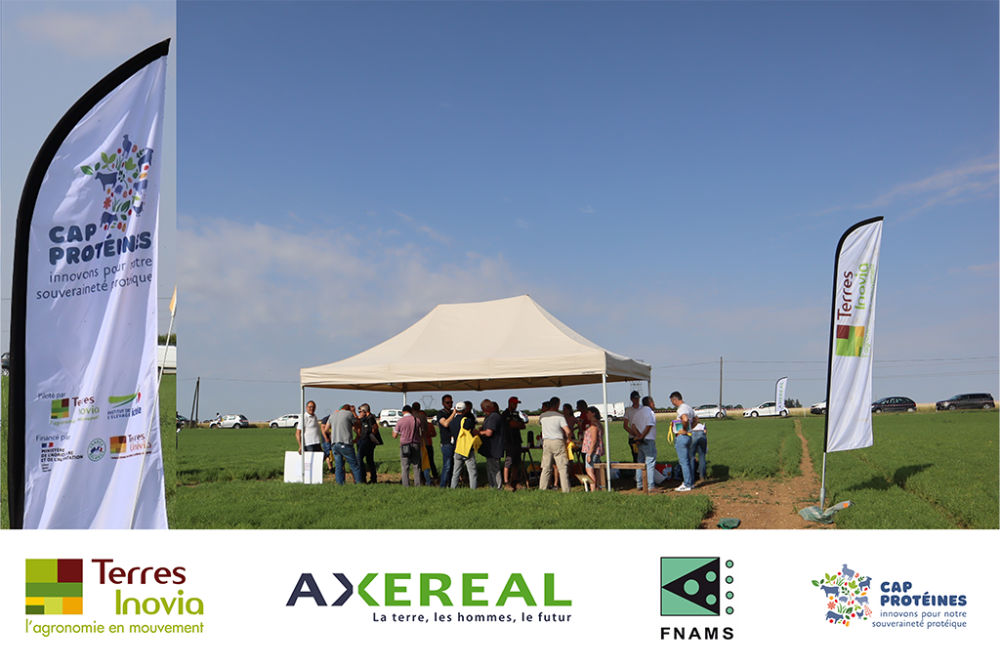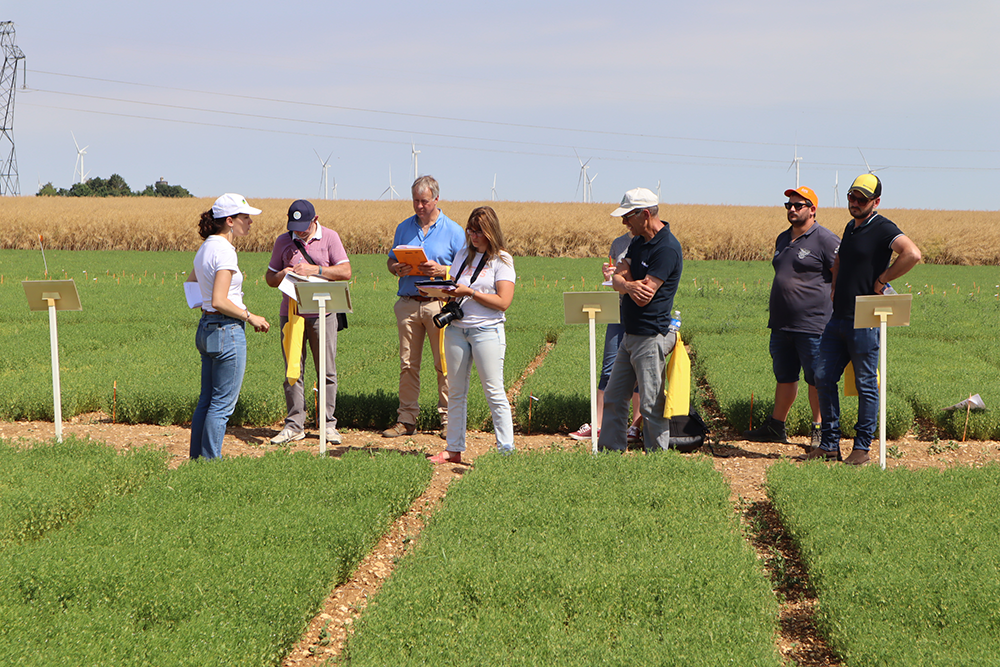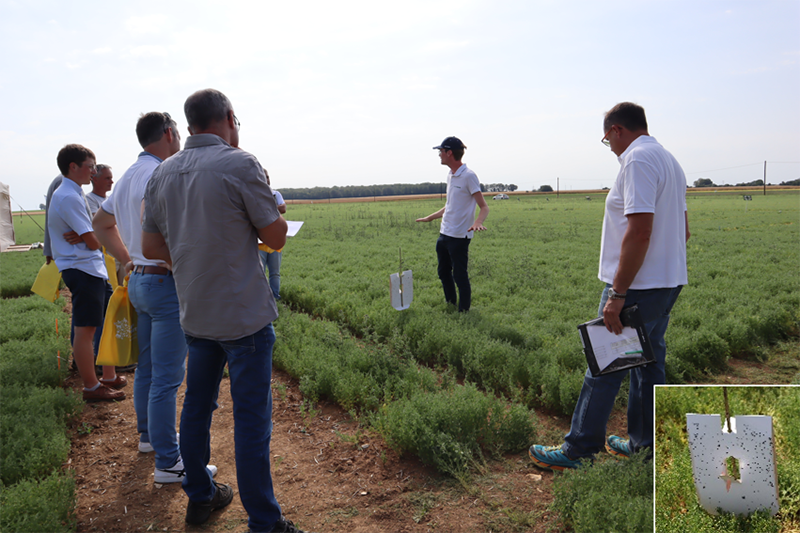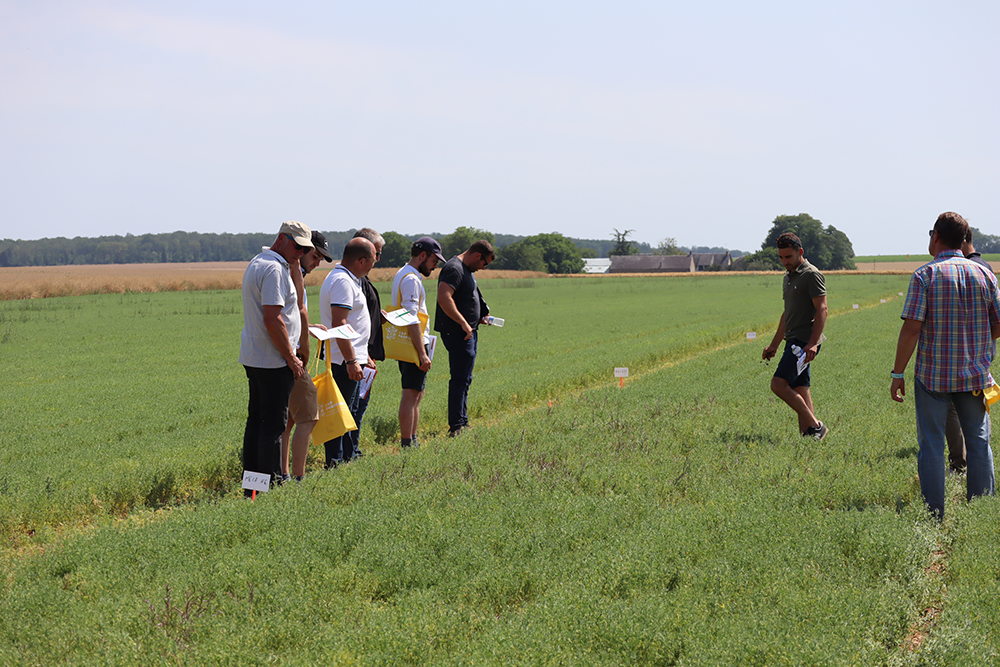Lentil platform: the diversity of themes and trials presented testify to the dynamism of the sector
Lentil platform: the diversity of themes and trials presented testify to the dynamism of the sector

About thirty farmers and technicians met on the lentil platform located in Avail (36) to discuss lentil growing.
After a presentation of the plot by farmer Laurent Cordaillat, president of the Berry green lentil ODG and president of the technical committee, Zoé Le Bihan, lentil referent at Terres Inovia, and Pascal Lacoffrette, agronomic coordinator at Axéréal, discussed the impact of the conditions of the 2022 campaign on lentils, with periods of heat and water stress. Despite this, lentil trials on the platform located in Avail (36) are promising.
This half-day session was built around 4 workshops :
CLIMATE CHANGE WORKSHOP : Marion Bouviala, FNAMS regional engineer, has presented tracks to adapt the technical itinerary of lentil to the year 2100. This study was carried out in the framework of the Cap Filière Semences et Plantes, Centre-Val de Loire region. The most striking aspect is the evolution of maximum temperatures in June during lentil flowering (+4.7°C on average by 2100) as well as the number of days >25°C (+10.1 days on average by 2100), not to mention the decrease in rainfall. All this would lead to a two-week advance in the harvest compared to today.
Access to the whole presentation"Adapting the technical itinerary for lentils to climate change"
▶Download the visit document


